The Disappeared
FEATURING
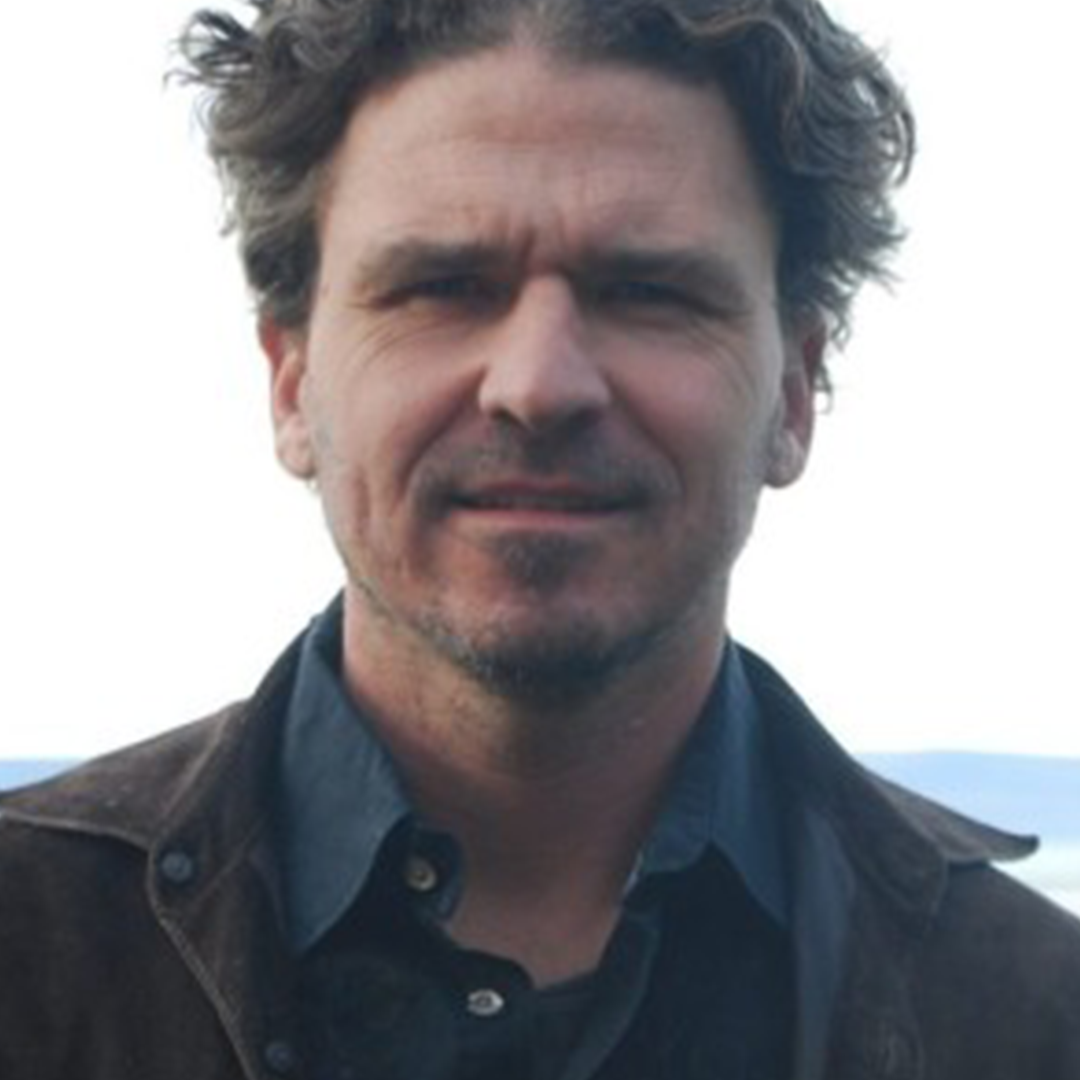
Dave Eggers
Writer
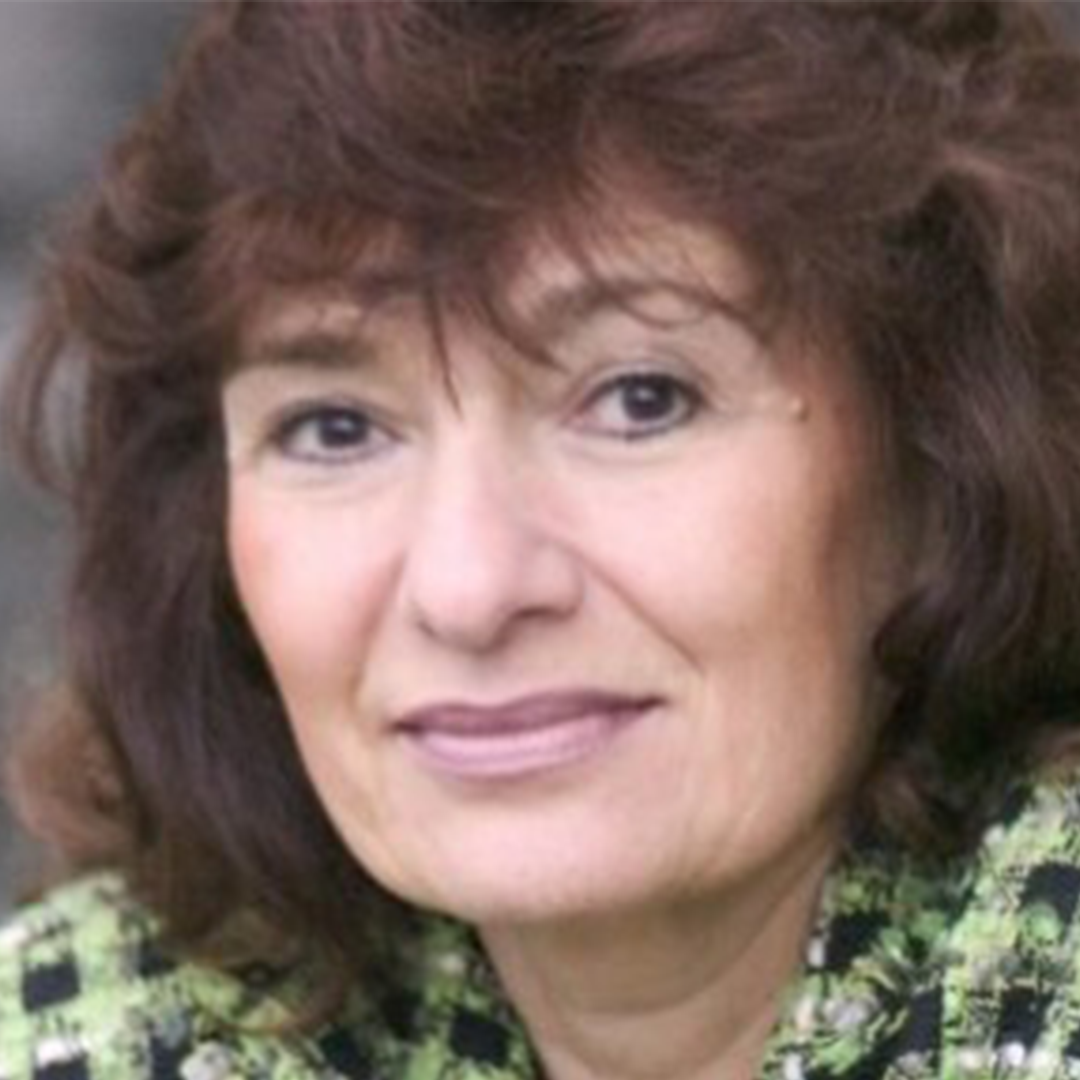
Lisa Appignanesi
Writer and campaigner

Xue Yiwei
Writer and academic
FEATURING

Writer

Writer and campaigner

Writer and academic
[vc_row][vc_column][vc_column_text]This week, 150 writers and academics signed an open letter expressing dismay at the current state of free and open debate. The list of signatories is like a Who’s Who of contributors to Index on Censorship magazine over the years. We have looked into our archives to dig out some of the articles we have published by some of the signatories.
Margaret Atwood defends fiction as a worthwhile use of free expression, Salman Rushdie decries total censorship in Pakistan, Noam Chomsky examines how atrocities are reported by those committing them, Nadine Strossman writing in 1995 paints a shockingly current picture of the USA today, and Eva Hoffman discusses her relationship with language as a Polish emigrant to Canada.
Don’t tell us what to write – Margaret Atwood
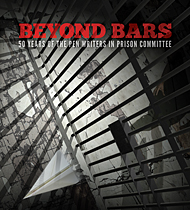 Writing for a special edition of Index on Censorship in 2010, which marked 50 years of the Pen Writers in Prison Committee, Margaret Atwood upheld the importance of being free to write unfettered by expectations or demands. Atwood explored the impulse of journalists to reveal the truth, writing: “You can take the guts out of the investigative journalists, both figuratively and literally, but so far no one has been able to completely suppress the human urge that’s at least as old as the Book of Job: the need to tell.” She also examined attitudes towards fiction. Being a self-described fiction writer and poet, Atwood talked about how fiction writers often write with intentions to make a certain impact, perhaps to better their readers or the world at large, but placing this as a caveat for fiction to be considered worthwhile,”is to fall into the very same kind of thinking that leads to censorship.” Click here to read the full article.
Writing for a special edition of Index on Censorship in 2010, which marked 50 years of the Pen Writers in Prison Committee, Margaret Atwood upheld the importance of being free to write unfettered by expectations or demands. Atwood explored the impulse of journalists to reveal the truth, writing: “You can take the guts out of the investigative journalists, both figuratively and literally, but so far no one has been able to completely suppress the human urge that’s at least as old as the Book of Job: the need to tell.” She also examined attitudes towards fiction. Being a self-described fiction writer and poet, Atwood talked about how fiction writers often write with intentions to make a certain impact, perhaps to better their readers or the world at large, but placing this as a caveat for fiction to be considered worthwhile,”is to fall into the very same kind of thinking that leads to censorship.” Click here to read the full article.

Writers and Apartheid, the June 1983 issue of Index on Censorship magazine.
Is there dark humour to be found in an oppressive regime’s censorship? Salman Rushdie opened his piece, first published in Index in 1983 and republished in 2012 in the 40 year anniversary special issue, by examining this question through his first encounters with the censorship of films as a child. Censorship, he wrote, became less of an abstract source of the absurd when he began to experience it as a personal reality. On returning to Karachi, Pakistan after studying at Cambridge, Rushdie’s attempts at expression and creativity were curtailed by censors, at one point being told “ ‘the word pork may not be spoken on Pakistan television.’” He wrote of the total censorship enacted by the Pakistani government who, unlike the Indian government, had a firm and terrifying grip over journalists. What are the effects of such censorship? Rushdie questioned. “Where there is no debate, it is hard to go on remembering, every day, that there is a suppressed side to every argument. It becomes almost impossible to conceive of what the suppressed things might be.” Click here to read the full article.
Confronting the Monster – Noam Chomsky
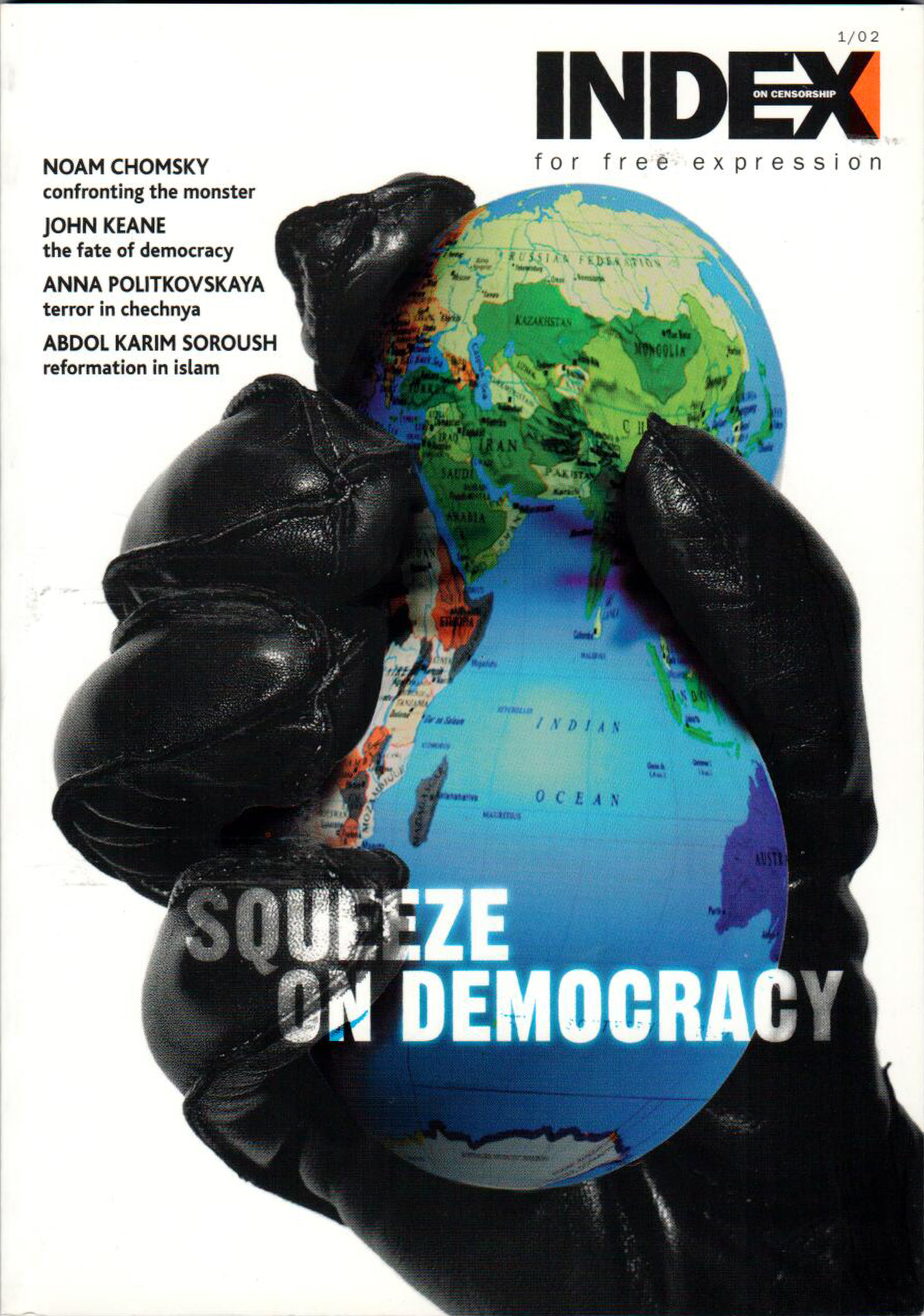
Squeeze on democracy, the spring 2002 issue of Index on Censorship magazine.
Writing in early 2002, arguably of the most pivotal points in recent US history, Noam Chomsky examined the coverage, or lack thereof, of the reaction and aftermath of the 9/11 terrorist attacks, and uses this example to dissect the notions of “them” and “us” in reporting on atrocities. The bombing campaign carried out by the US army on Afghanistan in October 2001, Chomsky wrote, left millions of Afghan civilians starving. Appeals to the US for an end to the bombing from UN bodies were rejected, and this was “virtually unreported”, as was a warning of humanitarian catastrophe from the Food and Agricultural organisation. Chomsky explained that the erasure of one’s own crimes against humanity is not a uniquely American phenomenon writing: “Only those entirely ignorant of modern history will find any of this surprising.” In the early 1990s, Chomsky wrote, the British government removed from the Public Record Office all files concerning the use of poisonous gas against “uncivilised tribes”. He summed up “the powerful determine what counts as history, what passes through the filters is the terrorism of the weak against the strong and their clients.” Click here to read the full article.
Diverting Tactics – Nadine Strossman

Rewriting history, the May 1995 issue of Index on Censorship magazine
Despite having been written in 1995 Nadine Strossman’s article examining attacks on The Bill of Rights, freedom of expression, and the groups in US society these attacks have the harshest impact on, feels startlingly current. Strossman wrote that the government proposals to criminalise desacration of the US flag would amount to “punishing the political protest that should be the most protected form of expression in a democratic society”. The violent dispersal of the ongoing protests sparked by the murder of George Floyd is a chilling reminder of the assault on freedom of expression in the USA today. Strossman highlighted how the rights of non-white groups are being specifically targeted through the disparagement of affirmative action programmes, which displays “the diminished national commitment to racial justice”. This is another topic, it perhaps goes without saying, that is an issue in present-day America. Strossman dissected the actions of politicians as quick fixes for societal problems. Click here to read the full article.[/vc_column_text][/vc_column][/vc_row][vc_row][vc_column][vc_column_text]Words between worlds – Eva Hoffman and Raja Shehadeh
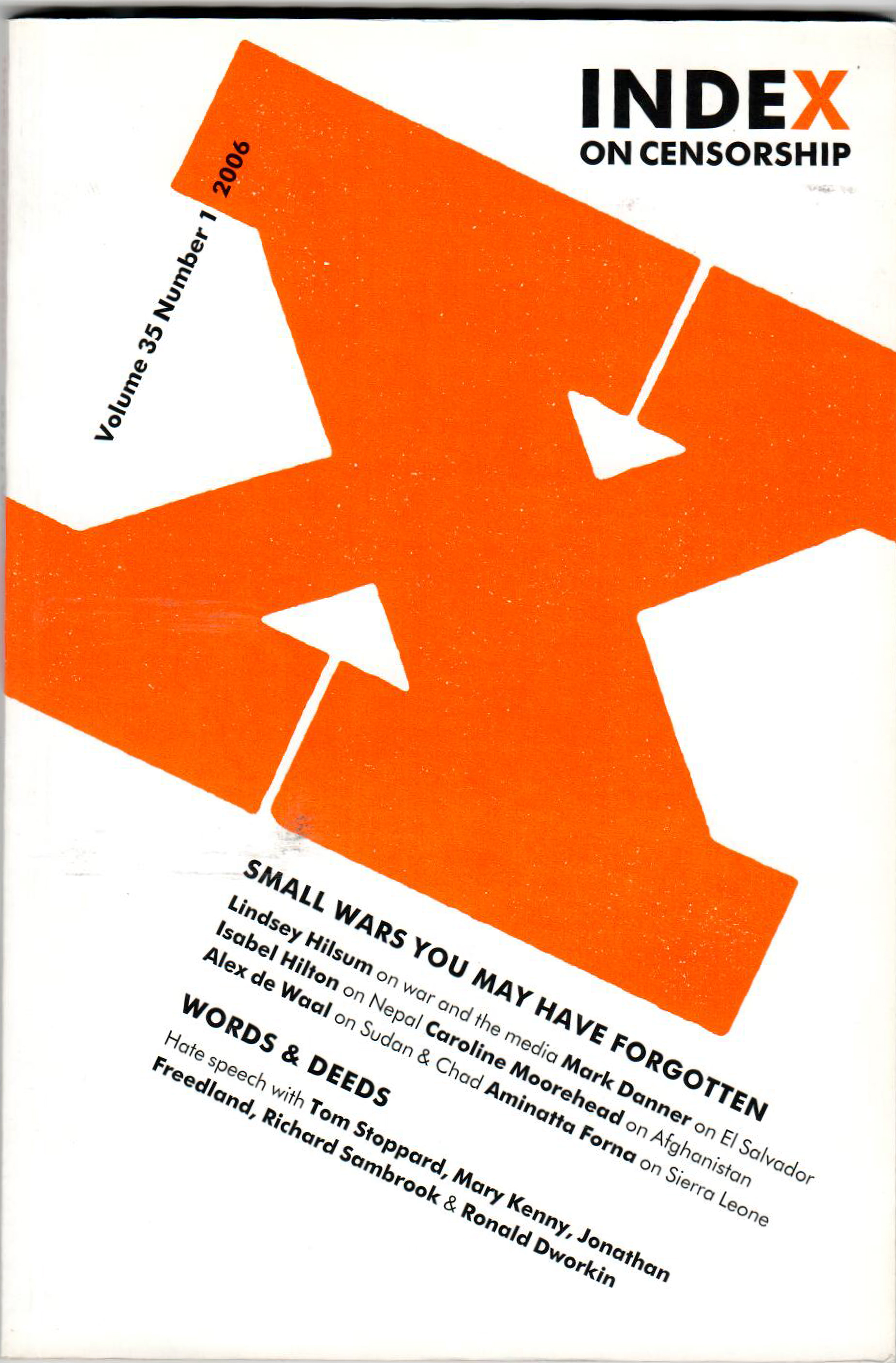 Eva Hoffman, author of Lost in Translation, spoke to then-editor Judith Vidal-Hall about her experience of emigrating from Poland to Canada as a child and developing a new relationship with language. As her native Polish became surplus to requirement, and English loomed as an unknown quantity, “I discovered to what extent language and culture constructs us really. To what extent it informs not only our larger assumptions and ideologies about the world”. Hoffman told Vidal-Hall how, having absorbed English as a second language, she found it to be beneficial as a writer; it gave her a vantage point of two cultures, two worlds. When asked why she started to write, Hoffman explained that through her words she might connect with people who had shared similar experiences: “I had some hope that perhaps I was trying to talk about things that had some meaning for other immigrants as well, that perhaps there was a kind of broader meaning to it”. Click here to read the full article.[/vc_column_text][/vc_column][/vc_row][vc_row][vc_column][three_column_post title=”You might also want to read” category_id=”7273″][/vc_column][/vc_row]
Eva Hoffman, author of Lost in Translation, spoke to then-editor Judith Vidal-Hall about her experience of emigrating from Poland to Canada as a child and developing a new relationship with language. As her native Polish became surplus to requirement, and English loomed as an unknown quantity, “I discovered to what extent language and culture constructs us really. To what extent it informs not only our larger assumptions and ideologies about the world”. Hoffman told Vidal-Hall how, having absorbed English as a second language, she found it to be beneficial as a writer; it gave her a vantage point of two cultures, two worlds. When asked why she started to write, Hoffman explained that through her words she might connect with people who had shared similar experiences: “I had some hope that perhaps I was trying to talk about things that had some meaning for other immigrants as well, that perhaps there was a kind of broader meaning to it”. Click here to read the full article.[/vc_column_text][/vc_column][/vc_row][vc_row][vc_column][three_column_post title=”You might also want to read” category_id=”7273″][/vc_column][/vc_row]
[vc_row][vc_column][vc_column_text]
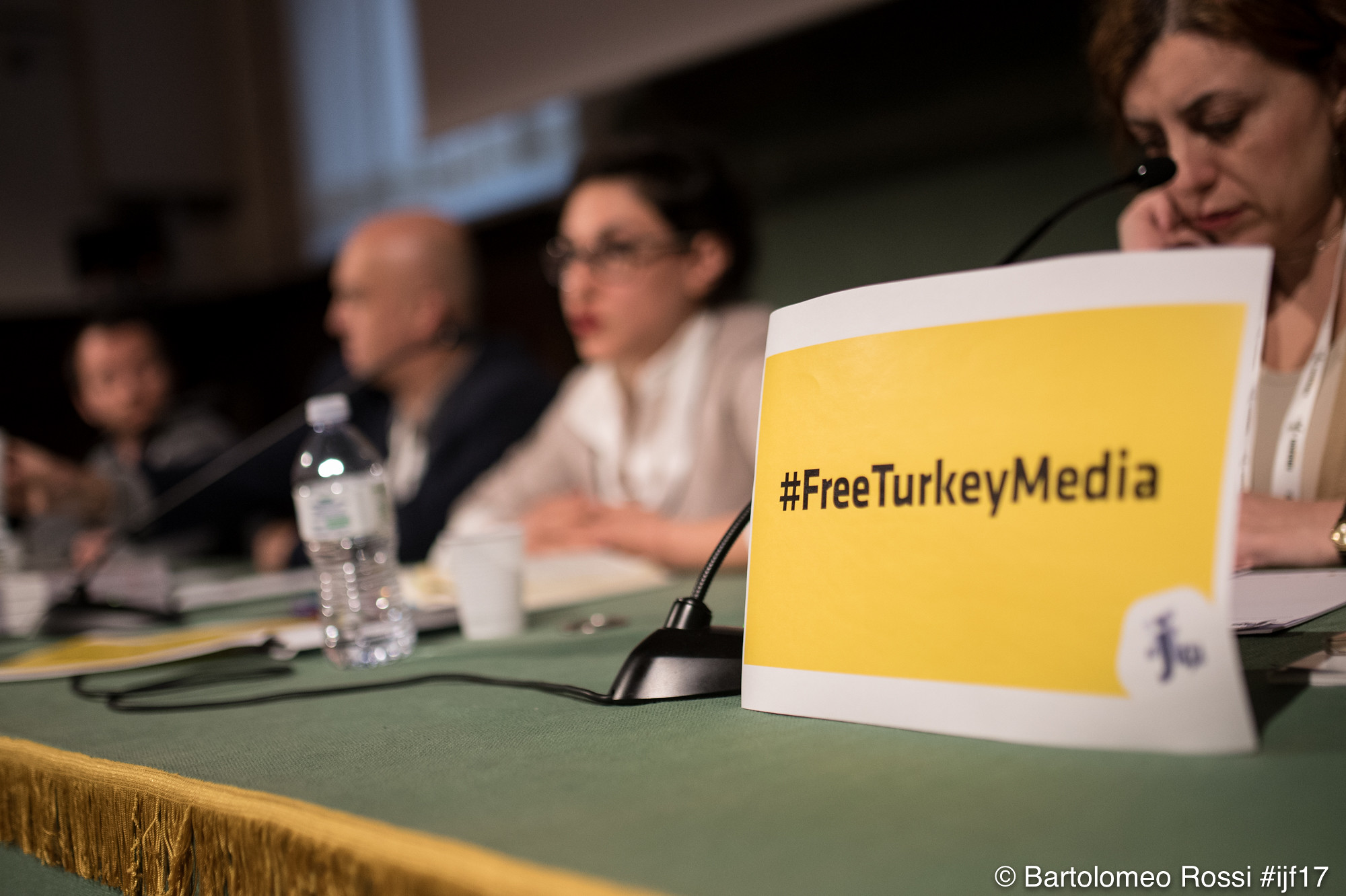
International Journalism Festival/Flickr
[/vc_column_text][/vc_column][/vc_row][vc_row][vc_column][vc_column_text]“In the Middle Ages people watched convicts getting quartered in public squares. Nowadays, on social media, they watch reporters as they live-tweet their ordeals: detention, physical attacks on the streets, losing their livelihoods,” said Turkish author and journalist Kaya Genç.
“For most Turks, watching journalists getting sacked or imprisoned or destroying each other’s careers became entertainment.”
Genç spoke to Index to answer questions posed by the Index youth advisory board about life as a journalist in Turkey under President Recep Tayyip Erdogan, and his latest book, The Lion and the Nightingale: A Journey Through Modern Turkey.
The youth board are elected for six months, and meet once a month online over that period to discuss freedom of expression issues. They are based around the world.
Hana Meihan Davis, from Hong Kong, asked how Erdogan managed to strip Turkey of journalistic freedom. Genç explained that divisions have existed between political sects in the media for decades, which the current ruling party was then able to take advantage of.
“When Islamists were in trouble in the 1990s secularists supported court cases against them; when secularists were locked up some liberals applauded; when Kurds were imprisoned most journalists looked the other way. Now as most of their colleagues are sacked or locked up conservatives act as if all is normal,” said Genç, who is also a contributing editor to Index on Censorship magazine.
Amid this sense of apathy Erdogan moved to create “a small army of loyalists in the media” as other news sites and newspapers were closed down.
Davis followed up her question, asking if people realised what was happening at the time? This is a question often asked when we look back with hindsight at the gradual erosion of freedoms. Were people like a frog who doesn’t realise the temperature of his water is slowly being increased to boiling? Genç said some journalists saw the dangers.
“Reporters and editors declared their independence, or found new patrons, and they are producing excellent work away from the influence of state power. I’m sure they were aware of what was happening while they worked at titles now tamed and indirectly owned by the government.”
The landscape for journalists in Turkey today is rocky terrain. There is an acute awareness of the censorship laws that can be imposed, coupled with a determination to provide much needed accurate reporting.
From the UK, Saffiyah Khalique asked about the laws around “public sensitivities”, which can result in imprisonment for up to a year for disrespecting the beliefs of religious groups, insulting Turkishness and other such “offences”. Genç said they are used within society to silence political dissenters.
“Twitter trolls who present themselves as pro-government journalists use these unclear laws to put their enemies behind bars. If an artist, piano player or actor says something critical about the government, they go through their timeline, find something they find insulting, and ask the public prosecutor to step in.”
Despite this possibility of prosecution being ever around the corner, Genç said he does not feel unsafe or threatened as a journalist in Turkey. “I feel free”, he answered to a question from Emily Boyle, a dual citizen of the UK and Switzerland
Recognising the value of objectivity appears to be Genç’s lifeline. When Indian national Samarth Mishra asked what is the most difficult part of being a journalist in Turkey, Genç said: “The hardest thing for a writer reporting from Turkey is to remain objective. You can’t be bitter about the government. Readers can benefit from the cold heart of a writer who does her best to be objective in her reporting.”
He said: “Our job, as writers, is to hold people with power to account, not to promote this or that political leader, defend this or that political ideology, propagate for this or that country … When a writer inhibits a space where nobody can accuse her of partisanship, believe me the effect of her writing will be much greater.”
The Lion and the Nightingale, Genç’s latest book, was published recently. It takes the reader on a journey through modern Turkey while exploring its history, via interviews he conducted on the road. Egil Sturk, from Sweden, asked Genç if there were any questions he was hesitant to ask his interviewees.
Genç said: “I am hesitant to ask questions about people’s religious beliefs and fiery ideological commitments. I prefer to give them enough space to articulate themselves where the bizarre, the eerie appears like a diamond in a mine. When people feel safe they tell you the most amazing things. Like an analyst you need to just sit there and listen.”
In answer to a question from Aliyah Orr (UK) about the emotional impact of the interviews he was conducting, Genç said:
“The prison chronicle of my friend and colleague Murat Çelikkan … had the strongest emotional effect on me. We used to work together, behind adjacent desks, and his experience in prison was empowering and unsettling. His account of imprisonment was rich with detail and you could see a great writer disappearing into the story’s characters and particulars of his story.”
Faye Gear from Canada asked what is different about today’s landscape in terms of freedom of expression. To tackle the suppression of free speech, Genç said people must think for themselves.
“I grew up idolising individual thinkers and writers: Susan Sontag, Jacques Derrida, Chantal Mouffe, VS Naipaul,” said Genç. “Nowadays we are invited to subscribe to what seems to be the most forward-thinking tribe and then follow its leaders by liking and retweeting their political snippets.”
In the face of an atmosphere of censorship, Genç remains defiant. In answer to a question from Satyabhama Rajoria, from India, about the struggles he faces as a journalist and author, Genç said: “There is of course always the anxiety that comes with publishing your writing, but that is healthy. Bullies, from the left and the right, may take your sentences out of context but that, too, is something one can deal with.”[/vc_column_text][/vc_column][/vc_row][vc_row][vc_column][vc_single_image image=”112300″ img_size=”full”][/vc_column][/vc_row][vc_row][vc_column][vc_basic_grid post_type=”post” max_items=”3″ grid_id=”vc_gid:1585828417099-e398f95f-d0bf-6″ taxonomies=”7355″][/vc_column][/vc_row]
[vc_row][vc_column][vc_single_image image=”60471″ img_size=”full” add_caption=”yes”][vc_column_text]As coronavirus spreads across Europe so too do issues surrounding the transparency and accuracy of information on it. This is deeply troubling given the importance of reliable information about the pandemic. So what exactly are the main roadblocks to accurate facts? Here are the key trends when it comes to coronavirus and free expression in Europe.
Scapegoating
Scapegoating, an unhelpful habit historically used by Russian propagandists to foist blame onto their Cold War opponents, is now being used to suggest that coronavirus may have been brewed in a lab by the Americans in order to cripple the Chinese economy. This is one of many bizarre theories that were spread among the Russian population in a bid to confuse and distract.
Another form of scapegoating has reared its head in France, in particular, in the form of racism against people with Asian heritage. There have been reports of French-Asians suffering racist abuse on the streets, public transport and in school. This has also been an issue in the USA, where President Donald Trump angered Chinese authorities by referring to coronavirus as the “Chinese Virus”.
Criminalisation of “fake news”
In the USA, the term “fake news” can easily be used to discredit accurate reporting that Trump doesn’t like, which is why the criminalisation of news designated as “fake” by world leaders generally is so dangerous. Hungary’s parliament has passed a law to let Prime Minister Viktor Orban rule by decree for an indefinite period of time, and the state has the power to imprison people considered to have spread false information – aka “fake news” – about coronavirus.
This trend is present elsewhere in Europe as governments attempt to control information on coronavirus. Patrick Sensburg, a member of the ruling party in Germany, said in an interview that the government should consider “ratcheting up statutory offenses” to penalise those spreading news considered fake by the state.
Republika Srpska, one of the two entities of Bosnia and Herzegovina, has also introduced fines for publishing false news and allegations that “cause panic and fear among citizens” in the mainstream press and social media.
Opaque about the figures
While high numbers of recorded cases and deaths from coronavirus are something every country would rather avoid, transparency is key to members of the public being fully informed and understanding the risks. According to the Financial Times, Kim Jong Un has publicly denied any cases in North Korea while at the same time quietly soliciting aid from abroad. In Europe, Turkey has displayed signs of being unwilling to disclose accurate figures. On 23 March, after data showed fewer and fewer people were being tested over successive days, possibly to reduce the number of cases on record, the Turkish Medical Association urged the Turkish government to test more people. They believe the government figures may be propaganda, designed to flatter the state’s control of the situation, which a doctor, speaking anonymously, claimed was in fact “out of control”.
Ill-informed leaders
At a time of a global pandemic, world leaders would serve their citizens best by bowing to the greater wisdom of medical experts. Unfortunately, some European leaders have appointed themselves as “experts” in the field of cures for coronavirus, an unfortunate echo of leaders who made false claims about cures for Aids when it swept through Africa. Speaking on state television for instance, President Alexander Lukashenko of Belarus claimed that people in the countryside should continue working: “The tractor will heal everyone. The fields heal everyone”. Serbia’s president, Aleksandar Vucic, said he had found a reason to have an extra drink every day, after he claimed health specialists had told him that coronavirus “doesn’t grow wherever you put alcohol”. Please note: there is no scientific evidence to suggest that drinking alcohol has any effect on coronavirus.
We have previously reported on how censorship in China was impacting the way news about coronavirus was being reported, and vital information being distributed. We are also mapping all of the attacks on the media right now, which are growing sharply by the day. This represents one of the most worrying attacks on free speech in Europe right now.
The incidents on the map are collated by our staff, contributors and readers as well as our partners at the Justice for Journalists Foundation and verified by our team before pubication. Please check out the map here and do notify us via the map of any attacks we might have missed.[/vc_column_text][/vc_column][/vc_row][vc_row][vc_column][/vc_column][/vc_row]